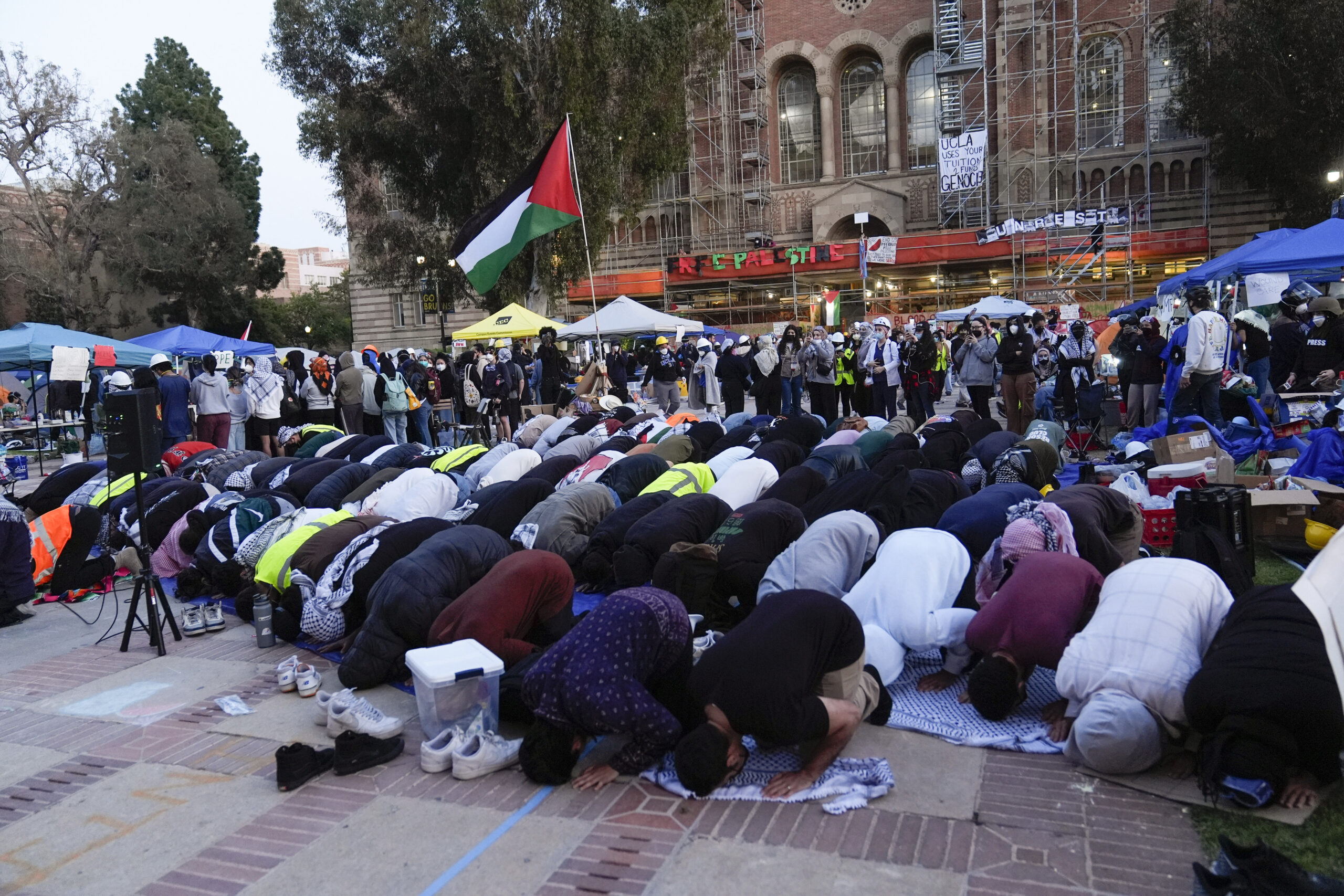U.S. colleges and universities are often sites for students (and outsiders) to demonstrate against various policies they oppose. Such demonstrations were particularly prominent during the Berkeley Free Speech Movement and against the Vietnam War in the 1960s.
Protests after Hamas and Gaza attacks
More recently, campus protests erupted after Hamas terrorists attacked and killed innocent civilians in Israel and took hostages on October 7, 2023. Israel responded with an invasion of Gaza. This, in turn, resulted in numerous civilian casualties and inflamed sentiment against both Jews and Muslims throughout the world.
As protests proliferated on college campuses, Congress held hearings calling into question whether campus administrators had sufficiently guarded students against anti-Semitic or Islamophobic actions. In time, the presidents of Harvard University, the University of Pennsylvania and Columbia University resigned after criticisms of their actions.
More recently, a U.S. district court has issued a preliminary injunction against the University of California at Los Angeles (UCLA). The decision came in response to a suit filed by three Jewish students who indicated that in April and May of 2024, protestors blocked their access to various university classrooms and services (including the library and rooms where final exams were being administered) because they refused to wear wristbands, indicating that they opposed the existence of Israel. This would be contrary to their religious faith.
Judge found Jewish students excluded because they refused to denounce their faith
On Aug. 13, 2024, Judge Mark C. Scarsi issued a rare preliminary injunction against UCLA indicating that the evidence before him suggested that “Jewish students were excluded from portions of the UCLA campus because they refused to denounce their faith,” a statement that he repeated and highlighted by putting it in italics.
Although students had challenged UCLA’s policies as violations of the Equal Protection Clause of the 14th Amendment, the free speech and free exercise rights of the First Amendment, and with interference with civil rights law, Judge Scarsi focused on free exercise rights, on which the U.S. Supreme Court has also placed increased emphasis.
Although the university had since demolished the encampment that had blocked access and had changed some of its policies, he believed that the Jewish students had established a likelihood of future injury of unequal treatment, which, he argued, was in direct violation of the free exercise clause.
He cited a number of Supreme Court precedents, including:
- Trinity Lutheran Church of Columbia, Inc. v. Comer (2017) — a state could not exclude a parochial school playground from a federal grant; and
- Carson v. Makin (2022) — preventing Maine from excluding families who sent their children to parochial schools from state aid that “invalidated state acts that had the effect of excluding individuals from public benefits based on their religious status.”
Attempting to provide some flexibility to university administrators, he observed that “if any part of UCLA’s ordinarily available programs, activities and campus areas become unavailable to certain Jewish students, UCLA must stop providing those ordinarily available programs, activities and campus areas to any students” while seeking to restore them to all.
The decision will likely be appealed and may not be the last word on the subject.
Emerging principles on religious freedom
New York Times Columnist David French observes in “Colleges Can’ Say They Weren’t Warned” that this and other cases have established at least two principles. One is that “the right to speak on a public university campus includes the right to engage in offensive speech.” A second principle is that “the right to speak … does not include a right to harass, and universities are obligated by Title VI to protect students against harassment on the basis of race, color or national origin, categories that encompass both antisemitism and Islamophobia.”
French tied these principles to precedents against content discrimination of speech, and to the right to restrict certain speech not on the basis of content but on the basis of “the time, place or manner of the speech” (2024).
John R. Vile is a political science professor and dean of the Honors College at Middle Tennessee State University.

